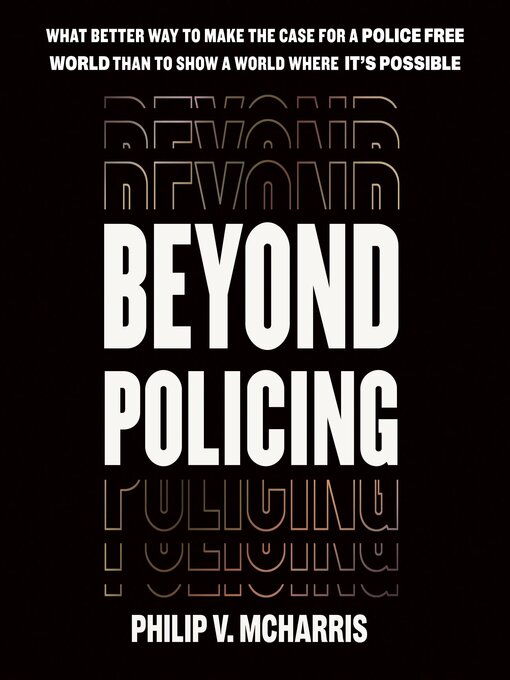What would happen if policing disappeared? Would we be safe? This book imagines a world without police.
It's evident that policing is a problem. But what is the way best forward? In Beyond Policing, distinguished scholar and writer Philip V. McHarris reimagines the world without police to find answers and reveal how we can make police departments obsolete.
Beyond Policing tackles thorny issues with evidence, including data and personal stories, to uncover the weight of policing on people and communities and the patterns that prove police reform only leads to more policing.
McHarris challenges us to envision a future where safety is not synonymous with policing but is built on the foundation of community support and preventive measures. He explores innovative community-based safety models (like community mediators and violence interrupters), the decriminalization of driving offenses, and the creation of nonpolice crisis response teams. McHarris also outlines strategies for responding to conflict and harm in ways that transform the conditions that give rise to the issues. He asks us to imagine a world where people thrive without the shadow of inequality, where our approach to safety is a collective achievement.
McHarris writes, "What if our response to crisis wasn't about control but about care? How can we create conditions where safety is a shared responsibility? How can we design justice so that no community is routinely oppressed? Envisioning such a world isn't just a daydream; it's the first step toward building a society where violence and fear no longer dictate our lives."
Transformative and forward thinking, Beyond Policing provides a blueprint for a brighter, safer world. McHarris's vision is clear: we must dare to move beyond policing and foster a society where everyone has the resources to thrive and feel safe.


